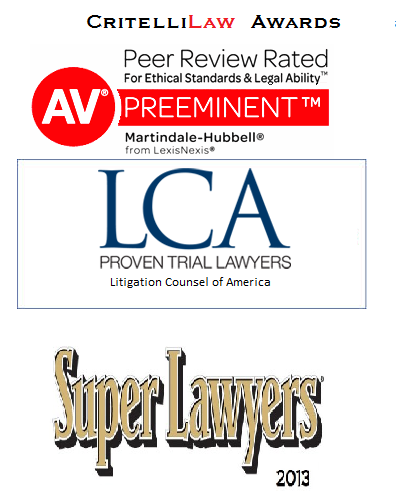Five things I learned at the 2009 ABA Techshow
Apr 9th, 2009 | By critellilaw | Category: TechnologyI recently received a LinkdIn message from my friend and fellow attorney George Davison wanting to know what I learned at the 2009 ABA TechShow in Chicago. While George was no doubt following my live Twitter feed from the show (whereby I was posting tidbits, thoughts and items of interest), I gathered from his request that he was interested in learning what I thought about the whole ABA Techshow experience. Here, then, are five reflections the week after my return:
(1) The ABA Techshow is for more than just lawyers.
For whatever reason, I naively assumed that all of the attendees would be attorneys in private practice. Perhaps it had something to do with the fact that the American Bar Association was the underlying sponsor. Regardless, I was struck by the number of non-attorneys that were there. I met a lot of IT professionals–both those that were in-house at various law firms and those that were consultants–and attorneys that were no longer in private practice but worked as consultants, general counsel or in some type of administrative position. There were also a surprising number of law students in attendance.
(2) Twitter is the “new thing”.
While Twitter has been around for awhile (e.g. I’ve had an account since March of 2007), it was still the darling of the TechShow. I guess there hasn’t really been much new on the tech front for a couple of years. Jim Calloway of the Oklahoma Bar Assocation did a great post on Twitter summarizing the good, bad and ugly aspects of Twitter so I won’t go into them. I would recommend, however, that you watch this YouTube clip about Twitter once you actually create your Twitter account:
The above notwithstanding, there are a lot of exciting things that you can DO with Twitter so I don’t think you should dismiss it outright. I certainly haven’t and will be implementing more Twitter-functions into the CritelliLaw site as I get them coded.
(3) Your personal SEO is essential.
One of the best presentations I attended was that put on by Jim Calloway and Nancy Roberts Linder on identity branding and the need to focus on your personal “search engine optimization” (SEO) as opposed to a “true” SEO which is concerned with keywords (i.e. fraud, lawyer, iowa, barrister). Jim and Nancy’s recommendation to focus on “what Google thinks” is in accordance with what I have found doing my own, informal research of friends. I have asked a number of people how they go about looking for a certain individual if all they knew was his or her name. Most would go immediately to Google and type the name in. Some (over 60) would go first to the phone book while others (under 25) would Facebook them first. Finding nothing, they’d next go to Google. Google is where it is at.
In a later post I’ll describe Jim and Nancy’s “formula” for optimizing your personal SEO but as a first step, if you don’t yet own your name as a domain name (i.e. www.trecritelli.com) then you should purchase it IMMEDIATELY before someone else does.
(4) You must be concerned about eEvidence and eDiscovery.
A large number of presentations covered eDiscovery, primarily with a focus on the following “process”:
If you aren’t familiar with eEvidence, then you probably should do some basic reading in the area. I’d suggest you start with this great guide to electronic discovery: Electronic Discovery Law Throughout the United States. Suffice to say that an entire industry (or two) has been formed around the acquiring, maintaining and interpreting the boatloads of digital “stuff” we are now all creating.
(5) Technology doesn’t practice law, you do.
This last reflection came out of the debriefing Nick and I underwent upon my return from the Techshow. It’s easy to get overwhelmed with everything out there, stuff that needs to be learned, has to be done and must be accomplished. To avoid this, we came up with some criteria to use when considering new hardware/software/cloudware. Quite simply, if something does not either help us to (a) obtain clients, (b) maintain current clients, or (c) retain clients, then it’s not worth bothering with.














